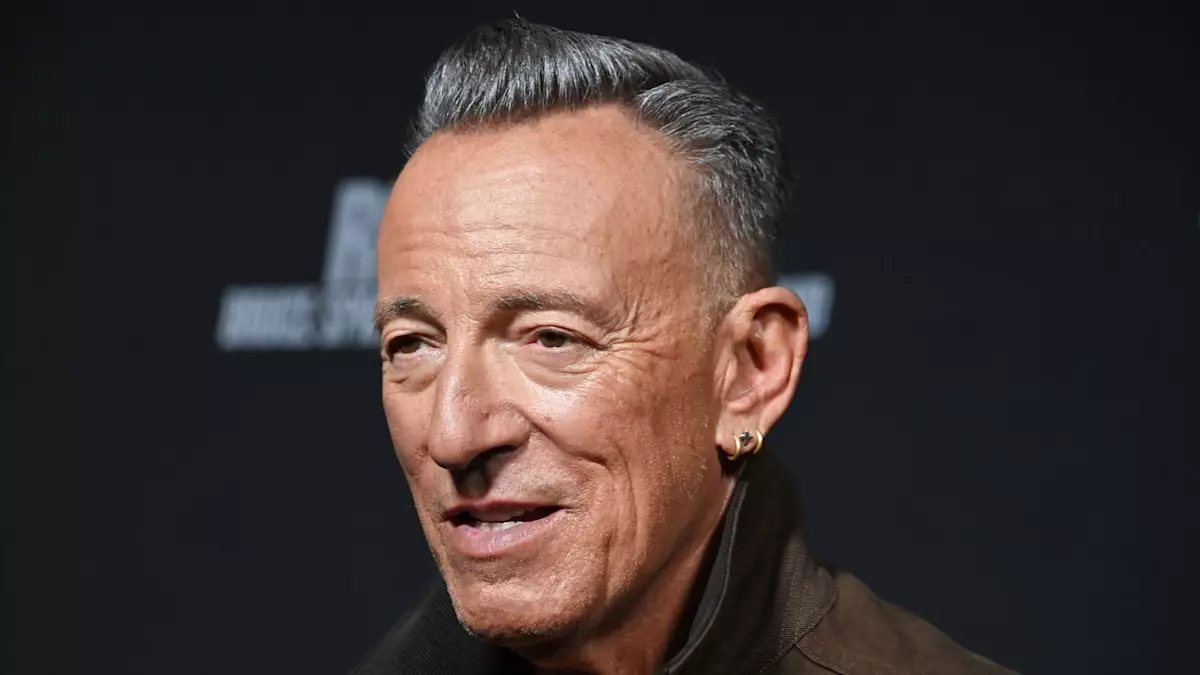In the wake of Liam Payne’s tragic death, resonating throughout the music industry is a poignant reflection on the pressures inherent to fame. Legendary musician Bruce Springsteen articulated this sentiment recently, sharing his perspective on the toll that the entertainment industry can take on young artists. The passing of the 31-year-old former One Direction member, who fell from a hotel balcony in Buenos Aires, has triggered a national conversation about the burdens faced by those in the limelight, a discussion weighted with urgency and emotion.
As Springsteen addressed in his interview, the pressures faced by young artists are formidable. With a unique blend of admiration and foreboding, he noted, “It’s a business that puts enormous pressures on young people.” The music industry, while offering a platform for creative expression, is also steeped in competition, expectation, and sometimes, exploitation. This dichotomy exposes young artists, often still grappling with their identities, to dangers they may not yet be equipped to handle.
Springsteen’s candid discussion sheds light on the troubling reality that many young stars have faced, an issue often masked by glitz and glamour. “Young people don’t have the inner facility or the inner self yet to be able to protect themselves,” he explained, emphasizing how the lack of emotional resilience makes them vulnerable. This vulnerability can manifest in self-destructive behaviors, frequently represented by substance abuse as they seek an escape from the relentless demands of fame.
Drawing from his own experiences, Springsteen candidly shared that he and his E Street Band colleagues battled various personal struggles, revealing that the culture of addiction was not foreign to them. This reflection is crucial; it highlights not only a collective struggle but also an obligation within the industry to acknowledge and address the pervasive mental health challenges that artists face. It prompts the question: Are we doing enough to protect the well-being of those who entertain us?
The grim reality that many artists face is further exacerbated by what Springsteen refers to as a “death cult” within the music scene—a cruel irony that underscores the profit-driven nature of the industry. Icons such as Jimi Hendrix, Janis Joplin, and Kurt Cobain serve as stark reminders of this tragic pattern, illustrating that the narrative of dying young often translates to a commercial boon for record labels. As Springsteen poignantly questioned, “What’s in it for you?” This inquiry not only serves to stoke introspection among artists but also calls the industry to accountability.
Springsteen’s reflections resonate particularly given his history with depression, which he indicates may be less visible than substance use but equally destructive. “With all artists,” he shares, “there is a tremendous push toward self-obliteration that occurs onstage.” Such sentiments further compel us to examine the systemic issues that contribute to these struggles.
As the music community mourns the loss of a young life, it becomes essential to foster an environment that prioritizes mental health and emotional support for artists. Share your struggles; break the stigma surrounding mental health traps artists in silence and solitude. Springsteen’s narrative of resilience can serve as a beacon for both emerging and established artists, encouraging conversations about vulnerability as an inherent part of the human experience.
Additionally, the heartfelt tribute from Sharon Osbourne, expressing concern over the industry’s failures, underscores the urgency for change within this ecosystem. Her question, “Where was this industry when you needed them?” resonates as a clarion call for reform—a challenge to industry leaders to construct safety nets for those who step into the unrelenting spotlight.
The tragic passing of Liam Payne must not simply be a moment of sorrow but a compelling catalyst for transformation in how the entertainment industry addresses the mental health of its stars. Bruce Springsteen’s insights offer not just a glimpse into the hardships artists face, but also a critical reminder of the responsibility we all share in advocating for a healthier, more supportive environment. As we reflect on the losses of the past, let us collectively strive to ensure a brighter path for future generations of artists navigating the complex world of fame.
